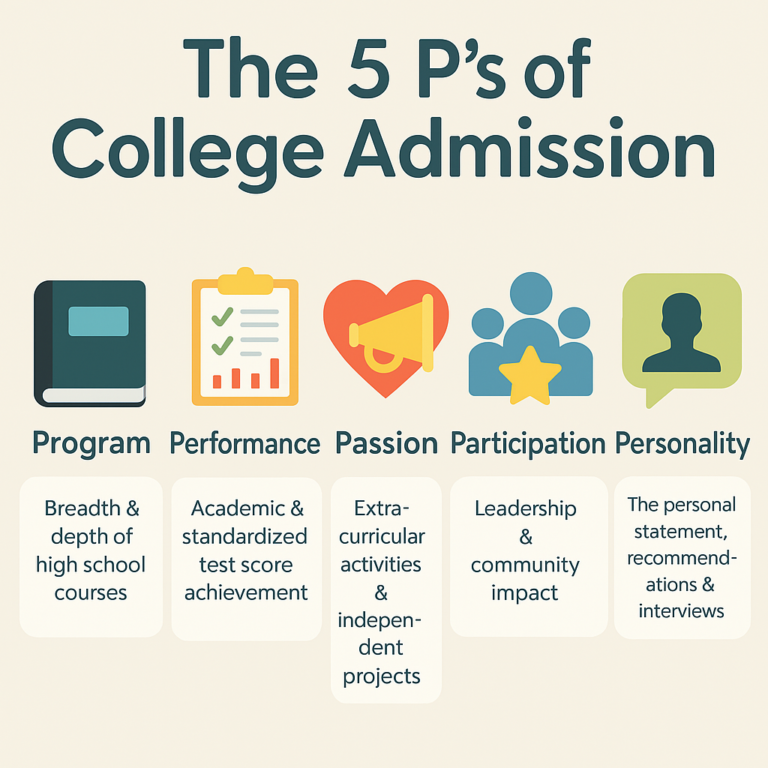How U.S. Colleges Really Evaluate GPA
– Why GPA Alone Is Not Enough in the College Admissions Process
Hello, this is Andy Lee, Director of Elite Prep Suwanee.
One of the most common questions I receive from parents—especially as college admissions results come out—is:
“Why didn’t my child get into a top college, even with a high GPA?”
To truly understand the answer, it’s important to look beyond the number itself and learn how colleges interpret GPA in context. It’s also essential to understand why standardized tests like the SAT and ACT still play a valuable role in holistic admissions decisions, even in a test-optional era.
✅ What Is GPA and Why Does It Matter?
GPA (Grade Point Average) reflects a student’s academic performance throughout high school. U.S. colleges use GPA to assess a student’s consistency, discipline, and long-term academic habits.
However, GPA is not simply a number—what matters is how that number was earned.
Let’s consider two students with a 4.0 GPA. One took only regular-level classes, while the other challenged themselves with AP and Honors courses. While their GPAs are the same, admissions officers will view these students very differently.
📌 The Three Key Factors Colleges Consider When Evaluating GPA
1. Academic Rigor
Colleges highly value students who challenge themselves with advanced coursework.
Taking AP, IB, Honors, or Dual Enrollment classes shows not only intellectual curiosity but also college readiness. A high GPA achieved through rigorous courses is much more meaningful than one earned through easier classes.
2. Balanced Course Selection
Even a strong GPA may be questioned if a student’s coursework is unbalanced.
For example, STEM students are expected to excel in math and science—but also show competency in English, history, and foreign languages. A well-rounded transcript reflects a student’s ability to thrive in diverse academic settings.
3. School Profile & Academic Context
Admissions officers don’t evaluate GPA in isolation.
They review a document called the School Profile, which outlines the academic environment of the student’s high school: GPA distribution, available AP/IB courses, grading scale, and more.
This helps colleges determine how a student performed relative to their peers in their unique educational context.
⚠️ Why GPA Alone Is Not Enough: The Impact of Grade Inflation
In recent years, grade inflation has become a growing concern across U.S. high schools.
More students are receiving high GPAs, but these grades don’t always reflect stronger academic performance.
As a result, many colleges now recognize that GPA alone cannot provide a reliable basis for comparison across thousands of schools.
This is where standardized tests like the SAT and ACT remain highly useful tools for admissions.
📊 Why Standardized Tests Still Matter
While many universities have adopted test-optional policies, some institutions (such as those in the University of California system) are reconsidering the importance of standardized testing.
Why? Because standardized tests provide a common, objective benchmark that allows colleges to compare students more fairly across different schools and regions.
In a time when GPA is increasingly difficult to interpret, tests like the SAT and ACT help demonstrate a student’s:
- Analytical thinking
- Problem-solving ability
- Readiness for college-level coursework
Especially for students in academically competitive regions or from rigorous high schools, a strong SAT or ACT score can reinforce the strength of a high GPA.
💡 Practical GPA Management Tips
Here are some essential strategies for maintaining a strong, competitive academic record:
1. Plan Your Coursework Strategically Starting in 9th Grade
Choose advanced classes that align with your interests and potential college major, while also ensuring balance across core academic subjects.
2. 10th–11th Grade: The Academic Spotlight
These are the most closely reviewed years by colleges. It’s the best time to take on Honors and AP courses and demonstrate academic growth.
3. Use Summer Wisely
Enroll in summer courses—such as those offered by Elite Open School—to explore new subjects or get ahead in courses that won’t fit into your regular schedule.
4. Prepare for Standardized Tests
Even if test submission is optional, a strong SAT or ACT score can add substantial weight to your application and build academic credibility.
✨ Final Thoughts
Today, U.S. colleges are not just looking at numbers.
They want to understand how you earned your GPA, what challenges you took on, and what kind of student you are becoming.
A strong GPA is important—but it’s not the final word.
It’s most effective when paired with:
- Thoughtfully chosen courses
- Intellectual curiosity
- Test scores that reinforce academic strength
When all of these elements align, students become the kind of applicants that top colleges actively seek out.
If you or your student would like personalized guidance on building a competitive high school record, we at Elite Prep Suwanee are always here to help.
Thank you for reading, and we wish you great success on your college journey!
Andy Lee
Elite Prep Suwanee powered by Elite Open School
📍 1291 Old Peachtree Rd, NW #127, Suwanee, GA 30024
🌐 eliteprep.com/suwanee
📧 andy.lee@eliteprep.com
📞 Tel & Text: 470.253.1004
1:1 Educational Consulting (Online/In-Person): Consultation Request Form







